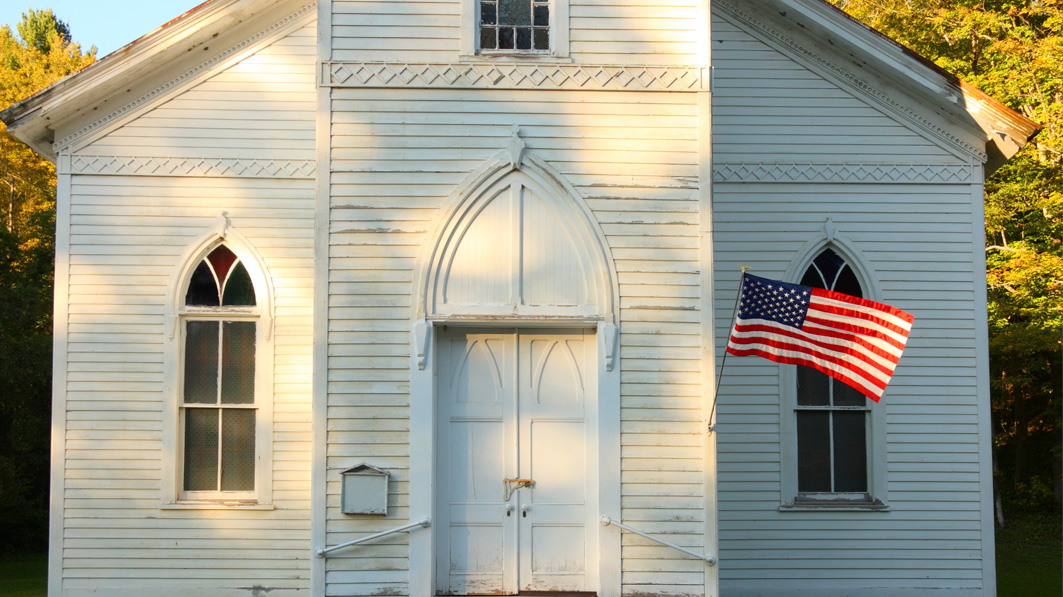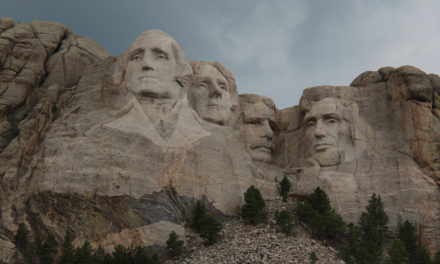According to some Americans, religion had no role to play in our country’s founding. They claim that every founding father was a deist, and the framers of the Constitution intended for religion to have no role in the governance of America.
I recently attended the Religious News Association’s annual conference where many believed this to be the case. The Freedom From Religion Foundation (FFRF) sponsored a panel informing journalists about the threat of “Christian nationalism.” They defined this as Christians who believe our laws should be informed by the Judeo-Christian understanding of morality. The FFRF panelists asserted that this toxic mixture of faith and politics was, “the greatest threat that America faces today.” According to them, only secular, enlightenment values played a role in our founding.
One of the panelists named Andrew Seidel, a lawyer at FFRF stated that Christian nationalism, “depends on a common well of lies, things like we are one nation under God, in God we trust, that the Declaration of Independence references God four different times, and that they prayed at the Constitutional convention.” Though he may wish it wasn’t so, all these things are quite true.
The phrase “one nation under God” is said by schoolchildren each day in public schools. In God we trust appears on American currency. The Declaration does reference God four times. And when it appeared the Constitutional Convention may fail, even the irreligious Benjamin Franklin requested that the delegates begin each day in prayer. According to the Library of Congress, “The eighty-one-year-old Franklin asserted that ‘the longer I live, the more convincing proofs I see of this truth, that God governs in the affairs of men. I also believe, that without his concurring Aid, we shall succeed in this political Building no better than the Builders of Babel.’” Though this motion by Franklin failed, it’s likely “because the Convention had no funds to pay local clergymen to act as chaplains.”
Now, it’s important to note that the debate on this topic has two incorrect extremes. On the one hand, some groups like the FFRF say that religion and Christianity played no role in the founding of America. On the other hand, some incorrectly believe that all the founding fathers were Christians. Between these two extremes, we find the truth that though not all founding fathers were Christians, Christianity did have a profound and formative influence on the nascent United States.
One of the best summaries of America’s Christian history is found in the 1892 Supreme Court decision Church of the Holy Trinity v. United States where the court recounted the numerous ways Christianity played a vital role in the founding of America.
The opinion, written by Justice Josiah Brewer, highlighted the Mayflower Compact as one such anecdote. The Compact was the governing document of the pilgrims who settled Plymouth Colony in 1620. The Pilgrims wrote, “Having undertaken for the glory of God, and advancement of the Christian faith, and the honor of our king and country, a voyage to plant the first colony in the northern parts of Virginia, do by these presents, solemnly and mutually, in the presence of God and one another, covenant and combine ourselves together into a civil body politick, for our better ordering and preservation, and furtherance of the ends aforesaid.’”
Justice Brewer then cited several state constitutions that at the time of the founding provided a religious test for state public office. These tests give evidence to the importance early Americans placed on religion. One such example comes from the constitution of Delaware. Brewer wrote, “The Constitution of Delaware, (1776) required all officers to make and subscribe the following declaration: ‘I do profess faith in God the Father, and in Jesus Christ His only Son, and in the Holy Ghost, one God, blessed for evermore, and I do acknowledge the Holy Scriptures of the Old and New Testament to be given by divine inspiration.’”
Now, the Constitution of the United States does prohibit a religious test for public office, but that qualification was not applied to the state governments until the Supreme Court case Torcaso v. Watkins in 1961.
Justice Brewer concluded his case with this statement: “These, and many other matters which might be noticed, add a volume of unofficial declarations to the mass of organic utterances that this is a Christian nation.”
Furthermore, George Washington proclaimed on 3 October 1789 a Thanksgiving Day proclamation to thank God for the establishment of the new nation. “It is the duty of all Nations to acknowledge the providence of Almighty God, to obey his will, to be grateful for his benefits, and humbly to implore his protection and favor.” Washington continued, “I recommend the 26th day of November to be devoted by the people of these states to the service of that great and glorious Being, who is the beneficent Author of all the good that was, that is , or that will be – That we may then all unite in rendering unto him our sincere and humble thanks – for his kind care and protection of the people of this Country.” President Washington used the prestige and power of the office of the President to proclaim a national day of thanksgiving to God. Presidents John Adams, James Madison and Abraham Lincoln did so as well.
Professor Daniel Dreisbach examined the influence of the Bible on American history in his book titled, “Reading the Bible with the Founding Fathers.” He writes, “The American founders read the Bible. Their many quotations from and allusions to both familiar and obscure scriptural passages confirm that they knew the Bible from cover to cover. Many founders were students of the Bible, and a few even wrote Bible commentaries. There were founders who regarded the Bible as indispensable to the American experiment in republican self-government and liberty under law.”
As this ample amount of evidence demonstrates, the early Americans were extraordinarily religious, and the United States is deeply rooted in the Judeo-Christian tradition. Anyone who is an honest student of American history can understand that.






